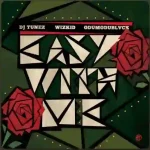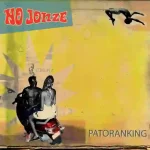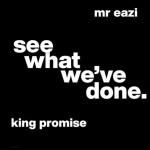Online casino gaming licenses are essential for operators seeking to conduct business legally in any country, and South Africa is no exception. This license demonstrates that the operator adheres to regulations and meets the standards required to operate a legitimate business.
Why do online casinos in South Africa need a gaming licence?
The South African betting market is huge. Grand View Research found that the online casino segment reached €128.0 million in 2024 and is expected to grow to €226.2 million by 2030. This represents a compound annual growth rate (CAGR) of 9.8%. Sports betting leads the market, accounting for approximately 60% of the sector’s revenue.
Given this massive market size and continued growth, proper regulation becomes important to protect both players and legitimate operators. A betting license gives companies the legal right to run their businesses in the country, as long as they follow the rules laid down. Provincial Gambling Boards issue these official permits and every gambling business must hold this license to operate legally.
Each province in South Africa controls its licensing system. The National Gambling Board (NGB) oversees all provincial boards to make sure they follow proper rules. Companies must pass tough financial and technical tests to get approved. These rules help keep the industry honest and protect players.
Current gambling laws in South Africa for 2025
South Africa uses a two-tier system to regulate casinos. National laws create the basic rules, while each province issues licenses and handles the actual day-to-day management. The National Gambling Act of 2004 serves as the overarching law that spells out the gambling activities that are allowed in the country.
Online sports betting is completely legal as long as the company has a proper provincial license. The National Gambling Act does not officially allow this type of gambling across the whole country, but some provinces take a more open approach. They interpret the current rules in ways that let them issue licenses for online casino-type games. These provinces often label casino games as fixed-odds betting or limited payout machines, to make them fit within existing laws. This gives operators a legal way to offer casino-style games to players.
South Africa’s gambling laws keep changing. Government officials have suggested major changes in 2018, 2022 and again in 2024 that would make online casino gambling fully legal everywhere. These proposed changes are still being discussed, but the continued push for reform suggests that complete legalisation could happen soon.
Why licenses matter for player safety
Online casinos that work hard to get licenses from trusted authorities prove that they care about their business reputation and player safety. These operators do not just use social media influencers to promote their websites. They understand that being fair and transparent builds trust with customers, which helps their long-term success. Legit casinos in South Africa go through strict testing and regular checks to keep their licenses.
Licensed casinos must follow strict rules about how they handle player money, and ensure their games work fairly. They also need to provide tools to help players gamble responsibly. Many licensed operators use independent regulatory companies to check their games regularly and make sure the random number generators (RNGs) work correctly.
It is important to note that online casinos in South Africa do not need to get licenses from South African regulatory bodies; many online casinos choose to register with well-known international authorities. These global licenses add extra protection for players and often come with higher standards for operations. Popular international bodies include the UK Gambling Commission, which is known for strict player protection rules, the Isle of Man Gambling Supervision Commission, and the Malta Gaming Authority, which regulates many European online casinos.
Players can usually find this information on the main webpage or in the footer section of the casino website. Look for phrases like “Licensed and regulated by”, followed by the authority name. This information should be easy to find and clearly displayed. Legitimate operators are proud of their efforts and want players to see this important safety information right away. If you cannot find clear licensing details on a casino website, this could be a warning sign that the operator may not be properly regulated.
Steps to get a South African gambling license
Companies that want to enter South Africa’s legal gambling market need to apply through their chosen province’s licensing office. Each province follows similar steps, but the types of gambling allowed can vary based on local rules. The process has four main parts:
Step 1: Submit your application
Companies must send a complete application to the appropriate provincial office. This paperwork must include a detailed business plan, proof that the company has enough money, information about who owns and runs the business, and a clear description of the gambling services they want to offer. Strong partnerships with other businesses, such as payment companies or software developers, can help your application.
Step 2: Background checks
Provincial officials will carefully check the company, its leaders and key workers. They look at financial records, criminal,history ,and reputation, often working with police. Companies nee,d to be completely honest and have a clean background to get approval.
Step 3: Technology review
The gambling platform must pass technical tests to meet provincial rules. Officials check that games are fair, money laundering prevention systems work properly, player information stays protected and that responsible gambling tools are built in.
Step 4: Final approval
After all checks are done, the provincial board will issue the license once the relevant fees are paid. The license will list what gambling activities are allowed (sports betting, lucky numbers, casino games, etc.) in progressive provinces such as the Western Cape.
The review process can take several months to over a year, depending on which province you apply to and how complex your application is.
National laws still officially ban online casinos and poker games, but some provinces have created legal ways for these products to operate. Companies need to consult local legal experts and must work closely with provincial officials to set up operations in South Africa’s changing online gambling market.



































Leave a Reply